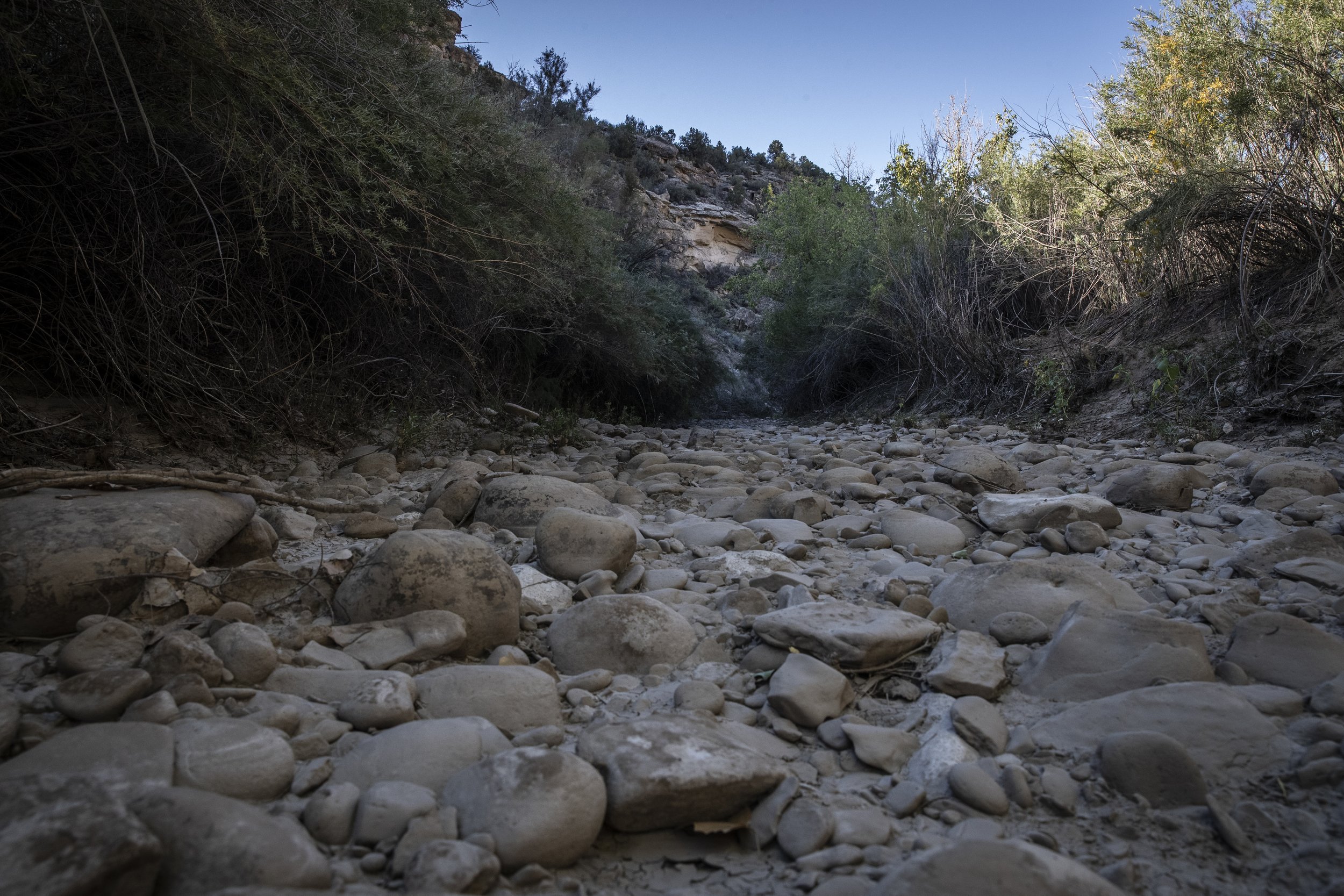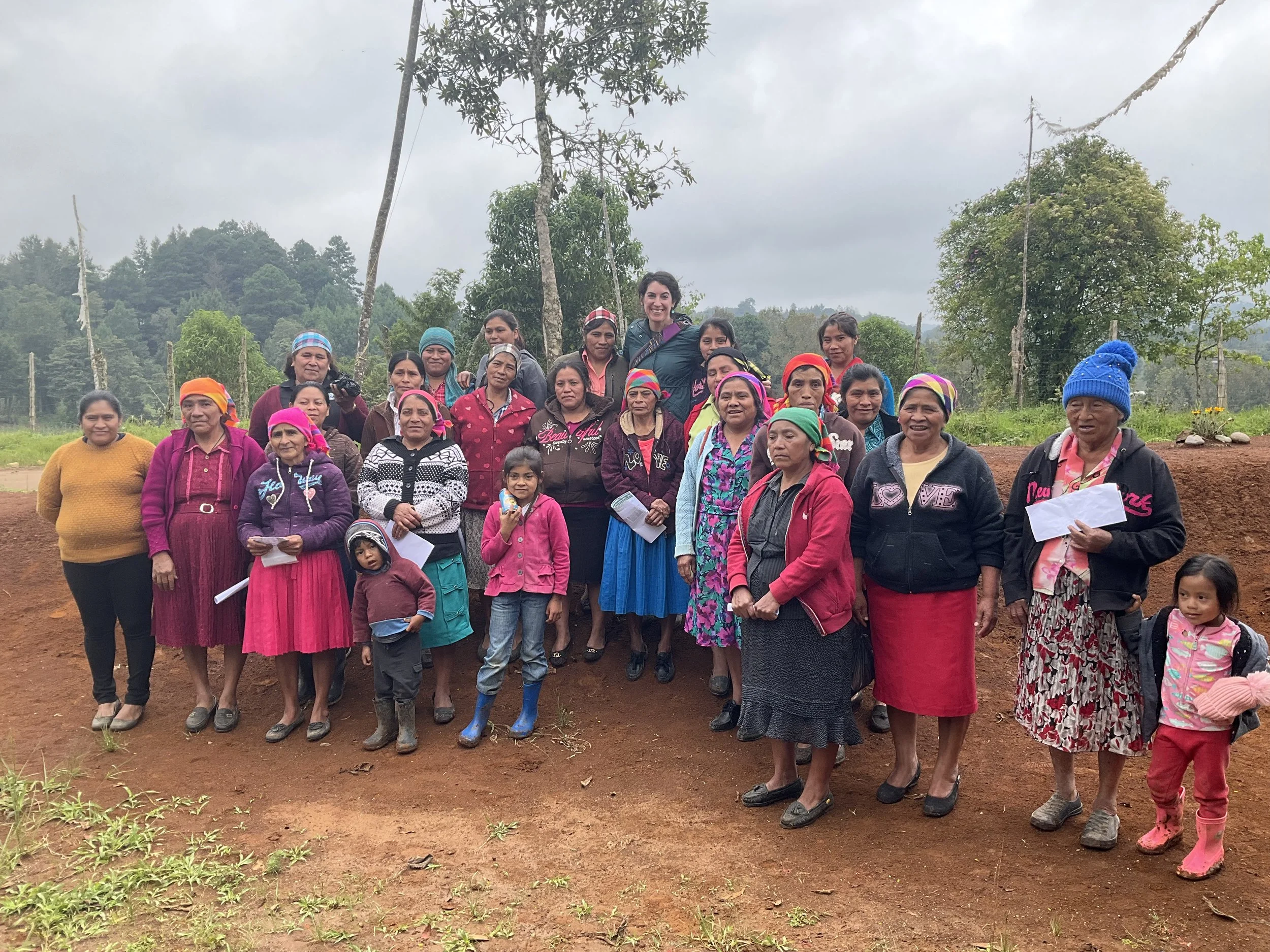Advocating for Gender Equity with Perseverance and Optimism
International Women’s Day gave us the opportunity to recognize and admire all the incredible women that have been part of our TWP family, and the new women leaders that have emerged through our work on the ground in Central America. This past February, our TWP team had the privilege to travel to Honduras, Guatemala, and El Salvador, where we were inspired by courageous women who continue to advocate, organize, and fight for more inclusive and equitable opportunities for their communities and future generations.
The Changing Roles of Women in Tribal Culture
Regina Lopez-Whiteskunk is a rockstar for Indigenous sovereignty, environmental justice, and gender equity and inclusion. She has been at the forefront of these initiatives in the southwest and has represented her Tribe as an everyday leader and previous member of the Tribal Council. A member of the Ute Mountain Ute Tribe, Regina grew up in southwest Colorado.
The Beginning
TWP is born. Trees, Water & People was cofounded in 1998 by Richard Fox and Stuart Conway, two foresters and friends who saw an urgent need to address the pervasive deforestation in Latin America. This vision quickly evolved as they realized the solution had to address the underlying causes of deforestation and benefit the people most affected by climate change. Twenty five years later, TWP is a leader in the design and implementation of programs that produce tangible benefits for people and the planet. Today, our work is more urgent than ever, as climate change threatens the livelihoods of millions of people in our region.
The Seeds
In the midst of the Guatemalan Civil War in the 1980’s, the Peace Corps continued sending volunteers to areas of the country unaffected by violence. Stuart Conway and Jenny Bramhall were a young married couple, and arrived in Guatemala with the same wide eyes, willing hands, and open hearts as many Peace Corps volunteers. While Jenny focused on the needs of women in their community, Stu leveraged his forestry training from Colorado State University to start local tree nurseries in areas surrounding his village. The seeds planted in those nurseries were the genesis of Trees, Water & People, which would start its work in Guatemala over a decade later.
The Sawdust Carpets of Suyapa
For decades, the community of Aldea de Suyapa has followed in a Latin American tradition of creating an Easter procession route through their community, marked by a series of sawdust carpets, designed and created by local youth. This is a tradition dating back hundreds of years, with strong continuity in Mexico and Central America.
Caring and Co-Existing With The Land
In today’s world, the term “environmental stewardship” has become heavily integrated into common language. We often hear about different approaches to protecting our lands, preserving our natural resources and ensuring that future generations will have the same access to these resources. The reach of this idea is so far and deep that it has become a global movement.
But this philosophy is not new.
Triquilapa and Cantagallo Declared a Wildlife Refuge
This month we celebrate alongside our partner the Ecological Committee of La Aldea de Suyapa (COEAS) the upcoming declaration by the National Congress of Honduras of the Triquilapa and Cantagallo Mountains as a Wildlife Refuge. The mountains of Triquilapa and Cantagallo are located to the east of the Central District, Honduras, ten minutes from the Aldea de Suyapa, also a cultural heritage of the country. These geological formations are the largest suppliers of water for La Aldea de Suyapa and surrounding communities, and have an endemic biodiversity of subtropical dry forest.
The Next Generation
What comes to your mind when you hear the word “Youth Development”? To us at TWP, we think of it as: acknowledging that the next generation will inherit the earth, and need to be involved in its care today.
New Opportunities for Sharing Indigenous Knowledge with Tribal Youth
Passing on the traditional values of environmental stewardship and reciprocity with the land has played a role in Indigenous cultures for time immemorial. Though the spirit of traditional learning remains the same, in today’s society, the way information is shared and passed down to the next generation has changed.
A labor of love: Dignified Livelihoods at TWP
“We seek to help create work opportunities that people can be proud of and that contribute to a higher standard of living.”
At TWP we believe everyone deserves a dignified livelihood. A dignified livelihood is more than income security, it's one that provides a safe and enjoyable environment, that ensures dignity and respect and gives constant opportunities to transcend barriers and grow. At TWP, this starts from within.
More Dignified Livelihoods: Beyond economic growth
One of our top priorities is helping create work opportunities that people can be proud of and that contribute to a higher standard of living. As TWP, we want to transcend the notion of "Economic Development" or "Economic Growth", terms that are often far from the real needs and demands of Central American communities and families.
Involving and Empowering Local People
I always ask myself, what’s better than a successful restoration project? Well for me, it's the idea of involving and empowering local people directly into the work and then gaining positive outputs leading to a higher standard of living.
Indigenous Sovereignty in Aldea de Suyapa, Honduras
One of Trees, Water & People 's priorities is to defend Indigenous sovereignty, where Indigenous communities have a say in any decisions that affect their land, resources, people, culture and governance.
In Honduras, the Indios Laborios de la Aldea de Suyapa are on the verge of a big win for their sovereignty, in declaring 5,000+ hectares of their communal forest a nationally registered Wildlife Reserve, to be co-managed by local communities.
Indigenous Sovereignty in Guatemala
For centuries, Indigenous People all over Latin America have struggled with colonization, displacement, territorial rights, and reclaiming their indigenous sovereignty. In Guatemala, the civil war (1960-1996), sparked the displacement of thousands of people across the country, forcing them to migrate to other neighboring countries. After the Peace Accords in 1996, many families returned from Mexico, where they had taken refuge.
What is Indigenous Sovereignty
What is Indigenous sovereignty? The Merriam-Webster online dictionary tells us that indigenous sovereignty is “supreme power especially over a body politic,” or “freedom from external control.” But in practice, Indigenous sovereignty means much more than that, and means different things to different people.
Solstice and Renewal
Happy solstice everybody.
In a few days we start getting a few extra minutes of daylight per day, and we get a choice of how we put those precious minutes to use. At best, we can hope to get to do the things we love, with the people we love, support the causes we care about, and work for the world we want.
Your Trust is the Greatest Gift
Over the past several months, Trees, Water & People (TWP) took on the challenge of stepping back to define our priorities, both for internal clarity, as well as to share with our more than 2,000 individual supporters and dozens of foundations and corporate partners.
Beyond Advocacy: How TWP is advancing Indigenous Sovereignty
At Trees, Water & People (TWP), we unequivocally celebrate the autonomy of Tribes within the United States, and advocate for Native sovereignty in decisions that affect their territories, cultures, and communities. There are 574 Federally recognized Tribes in our country, each with rich histories, traditions, and governance structures that deserve our respect and attention.
TWPs Five Community-Centered Priorities
In 2023, Trees, Water & People (TWP) will celebrate 25 years of creating environmental, social, and economic impact for frontline communities most affected by climate change.
Bringing A Cookstove Intervention Full Circle
Have you heard of helicopter research? It basically means researchers from wealthy countries conduct studies in lower-income countries, collect samples, analyze and publish findings with minimal involvement from local experts, and offer no benefits or report-back information for communities. This is also called neocolonial, parachute, or parasitic research and can be found across scientific disciplines. As a multi-disciplinary researcher in Epidemiology and Anthropology, I cringe to write this. It is familiar both within my own experiences and what I know from colleagues.





















